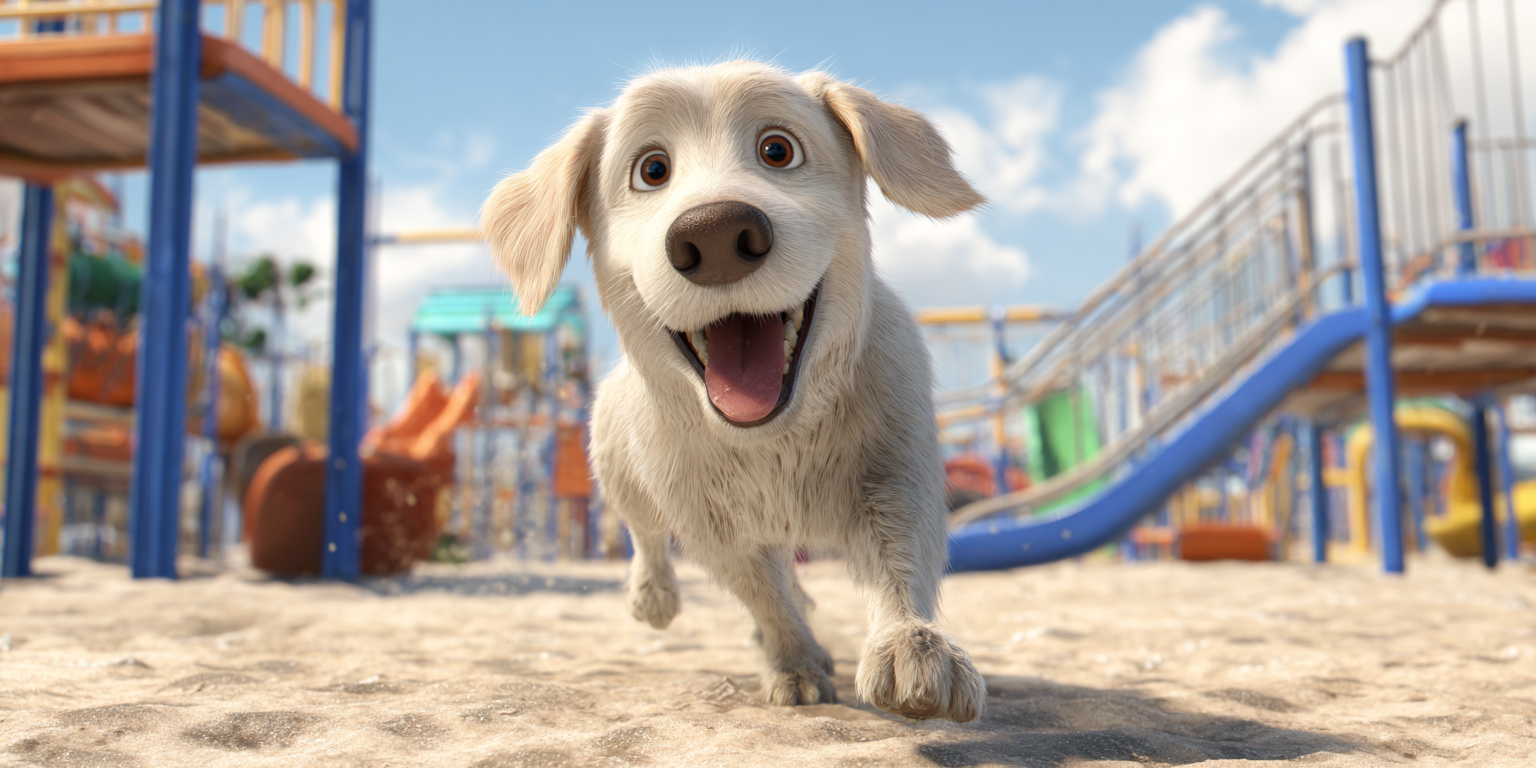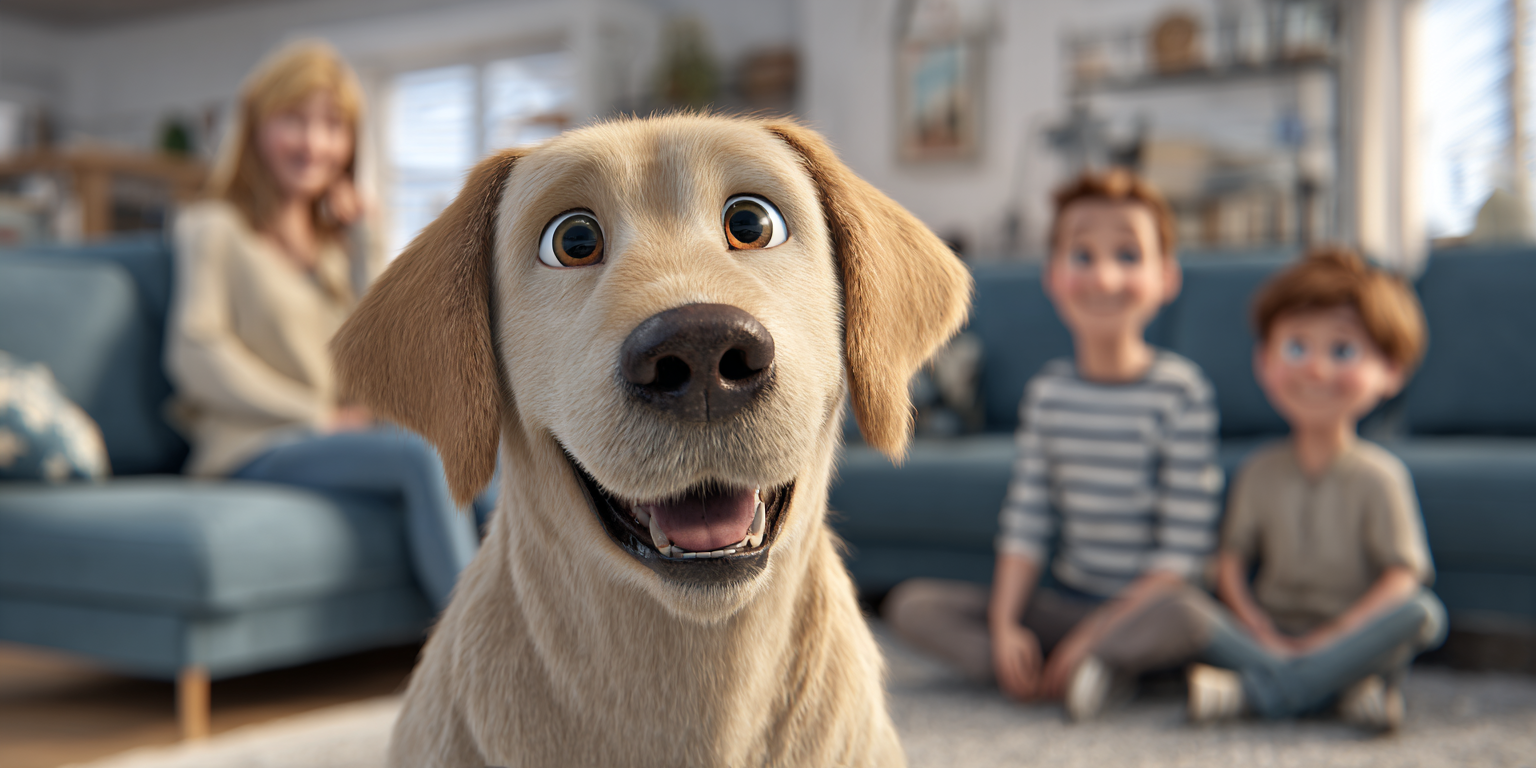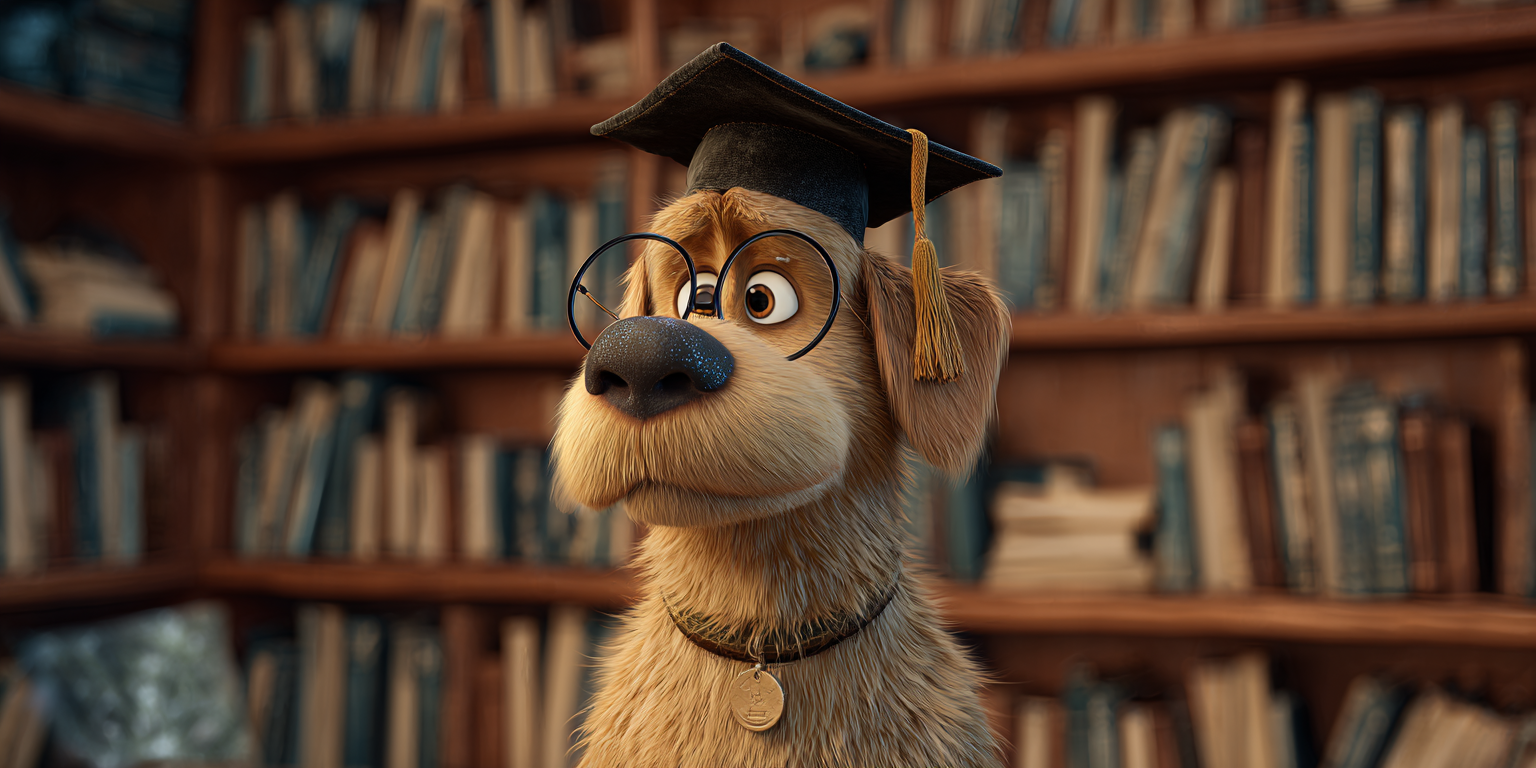Labrador Retriever Breed Guide
Breed Guide Labrador Retriever – The Family Favourite

Ah, the Labrador Retriever – the world’s most popular dog breed and quite possibly the one that thinks it’s everybody’s best friend.
If you’ve ever met a Lab, you’ll know that these lovable goofballs will greet you with a wagging tail, a big grin, and maybe a slobbery tennis ball.
But there’s more to this breed than just charm and cuddles. If you’re thinking of adding a Labrador to your family, here’s everything you need to know – with a little straight talk from our resident grumpy dog, Grumpy Old Max.
Breed History & Personality Traits
The Labrador Retriever originated in Newfoundland, Canada – not Labrador as the name might suggest.
They were bred to help fishermen haul in nets, retrieve fish, and be all-round water-loving helpers. Their intelligence and eagerness to please quickly made them valuable working dogs, especially for hunting and retrieving game.
Today, Labs are renowned for their friendly, outgoing personalities. They are affectionate, social, and loyal – the kind of dog that just loves being part of the family. Labs are known to get along with everyone: kids, strangers, other pets – even the mailman (much to the postie’s relief).
Max says: “Ugh, Labs. Always smiling, always wagging. They’re like the golden retrievers’ overly enthusiastic cousin. Tone it down, buddy – no one needs that much joy before coffee.”
Key Personality Traits:
- Friendly, affectionate, and people-oriented
- Highly intelligent and eager to please
- Great with kids and other pets
- Playful and energetic, especially in their younger years
- Food-obsessed – you’ll never eat in peace again!
Exercise, Grooming & Training Needs
Exercise Needs
Labradors are high-energy dogs that thrive on physical activity. They need at least 1–2 hours of exercise per day, including walks, games of fetch, swimming, and playtime. Without enough exercise, Labs can become bored and destructive – and you really don’t want to know what a bored Lab can do to your furniture.
Max says: “Labs have two speeds – fast and asleep. Skip their walk, and you’ll find out just how much ‘fast’ they can be indoors.”
Grooming Requirements
Despite their short coats, Labradors shed a lot. Regular brushing – about 2–3 times per week – will help manage shedding, especially during spring and autumn when they “blow” their coat. Bathing every couple of months (or when they inevitably roll in something smelly) is usually enough. Don’t forget regular ear cleaning – Labs are prone to ear infections due to their floppy ears and love of water.
Training
Labs are clever and eager to please, which makes them one of the easiest breeds to train. Positive reinforcement, consistency, and early socialisation are key. Start basic obedience training as soon as possible, and you’ll have a well-mannered companion.
Max says: “Training a Lab is easy – as long as you bribe them. These guys would do your taxes for a biscuit.”

Family & Lifestyle Suitability
Labradors are often called the perfect family dog, and for good reason. They are patient, affectionate, and fantastic with children. Labs thrive in active households where they get plenty of playtime, walks, and attention.
They’re also versatile dogs – whether you live near the beach, in the suburbs, or on a farm, Labs adapt easily as long as they get exercise and companionship.
Best Suited For:
- Families with kids
- Active singles or couples
- People who enjoy outdoor activities
- Homes with secure yards (Labs are known escape artists when they’re curious)
Not Ideal For:
- People with busy lifestyles who can’t dedicate time to exercise
- Apartment living without regular outdoor time
- Owners who can’t resist those puppy-dog eyes at dinner time (because Labs will beg)
Max says: “Labs are like that friend who’s always ready for a road trip. Family picnic? They’re in. Beach day? They’re already wet. Netflix binge? Sure – as long as there’s snacks.”
Common Health Considerations
Like all breeds, Labradors are prone to certain health issues.
Being aware of these conditions can help you keep your Lab healthy and happy for years to come.
Common Health Concerns:
- and Elbow Dysplasia – A genetic condition that can cause arthritis and mobility issues.
- Obesity – Labs love food, which puts them at high risk of weight-related issues.
- Ear Infections – Their floppy ears and love of water make infections common.
- Progressive Retinal Atrophy (PRA) – A degenerative eye disorder that can lead to blindness.
- Exercise-Induced Collapse (EIC) – A rare condition where Labs may collapse after intense exercise.
Prevention Tips:
- Regular vet check-ups and vaccinations
- A balanced diet – don’t let those pleading eyes fool you!
- Weight management and daily exercise
- Routine grooming and ear cleaning
Max says: “Labs will eat anything. Socks, rubbish, your lunch. Watch them or you’ll be on first-name terms with your vet.”
Max’s No-Nonsense Advice: Real Tips from Our Resident Grumpy Dog
“Listen up, humans. Labs are great, but they’re not just a big cuddle toy. They need proper care – so take notes.”
1. Keep Them Active, Or Pay the Price
A tired Lab is a happy Lab. Skip their exercise, and you’ll come home to a house that looks like a tornado hit it.
2. Hide the Food
Labs are professional snack thieves. Leave food unattended, and they’ll inhale it faster than you can say “drop it.”
3. Train Them Young
Labs are smart, but they can be cheeky. Start training early, or you’ll end up with a 30kg lap dog who ignores every command except “dinner time.”
4. Don’t Get Lazy on Grooming
They shed like it’s their job. Brush them regularly unless you like wearing a fur coat all year round.
5. Labs Are Family Dogs – Not Lawn Ornaments
Labs crave love, attention, and time with their humans. If you’re not ready for a companion who’ll follow you everywhere (including the bathroom), think twice.
Max says: “Look, Labs are solid dogs. Just remember – they’re like toddlers with fur. Fun, loving, and always up to something.”
Are Labradors the Right Dog for You?
Labrador Retrievers have rightfully earned their title as the family favourite dog breed. They’re affectionate, loyal, playful, and adaptable – making them ideal companions for just about anyone who can keep up with their energy and appetite.
If you can provide exercise, training, and endless cuddles, a Lab will repay you with unwavering loyalty and enough love to last a lifetime. But be warned – once you get a Lab, life (and your house) will never be the same again.
Max says: “So you want a Lab? Great choice. Just don’t come crying to me when you realise you’ll never eat a meal alone again.”




